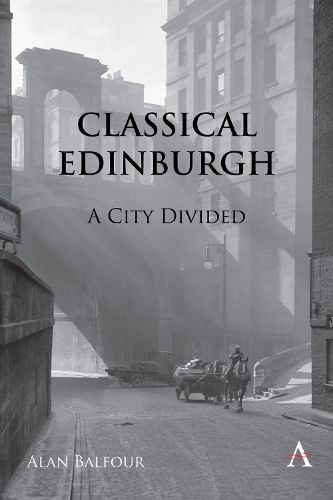Readings Newsletter
Become a Readings Member to make your shopping experience even easier.
Sign in or sign up for free!
You’re not far away from qualifying for FREE standard shipping within Australia
You’ve qualified for FREE standard shipping within Australia
The cart is loading…






This work is both a family history and asocial history of Scotland with a particular focus on Edinburgh.
The families are mine, traced from their roots in 17th century into the 20th. However, all their wandering and failures, and births and marriages, are in themselves of no importance, they are merely the actions of helpless actors (one not so helpless) caught in the midst of changing worlds and realities. I have embedded their lives into the larger forces in a changing Scottish culture, climaxing in the creation of the New Town of Edinburgh, one of the 18th and 19th century's most extravagant romantic fantasies. It was a reality shaped by the leaders of the Scottish Enlightenment to give identity to a capital of a nation in name only, after the closing of the Scottish parliament with the Union of the Crowns in 1707.
This New Town became a vast idealised reality, which could only have been achieved in a Scotland that was and remains essentially feudal. All the lands surrounding the walls of the old city were the inherited properties of a few aristocratic families who were able, free of constraint, to sustain a succession of developments for over eighty years creating a continual stream of wealth for the landowners and their successors, and in the process producing extreme poverty for those left behind.
By the mid 19th century, a very different reality emerged out of the need to accommodate the poor and the rising workforce in the city's new industries. This resulted in street after street of monotonous, identical tenements, a joyless demeaning world in stark contrast to the lively grandeur of the housing in the new town. The medieval tenements of city's old High Street, were once called 'slums built to last a thousand years,'and in many ways the extensive tenements of the industrial city from the 19th and 20th century, can equally be said to represent the prospect of people divided for a thousand years...It will be argued that such division are unavoidable and can be found in many cities, but it is the extent and the willfulness of the planning that makes the Edinburgh example so potent.
$9.00 standard shipping within Australia
FREE standard shipping within Australia for orders over $100.00
Express & International shipping calculated at checkout
This work is both a family history and asocial history of Scotland with a particular focus on Edinburgh.
The families are mine, traced from their roots in 17th century into the 20th. However, all their wandering and failures, and births and marriages, are in themselves of no importance, they are merely the actions of helpless actors (one not so helpless) caught in the midst of changing worlds and realities. I have embedded their lives into the larger forces in a changing Scottish culture, climaxing in the creation of the New Town of Edinburgh, one of the 18th and 19th century's most extravagant romantic fantasies. It was a reality shaped by the leaders of the Scottish Enlightenment to give identity to a capital of a nation in name only, after the closing of the Scottish parliament with the Union of the Crowns in 1707.
This New Town became a vast idealised reality, which could only have been achieved in a Scotland that was and remains essentially feudal. All the lands surrounding the walls of the old city were the inherited properties of a few aristocratic families who were able, free of constraint, to sustain a succession of developments for over eighty years creating a continual stream of wealth for the landowners and their successors, and in the process producing extreme poverty for those left behind.
By the mid 19th century, a very different reality emerged out of the need to accommodate the poor and the rising workforce in the city's new industries. This resulted in street after street of monotonous, identical tenements, a joyless demeaning world in stark contrast to the lively grandeur of the housing in the new town. The medieval tenements of city's old High Street, were once called 'slums built to last a thousand years,'and in many ways the extensive tenements of the industrial city from the 19th and 20th century, can equally be said to represent the prospect of people divided for a thousand years...It will be argued that such division are unavoidable and can be found in many cities, but it is the extent and the willfulness of the planning that makes the Edinburgh example so potent.